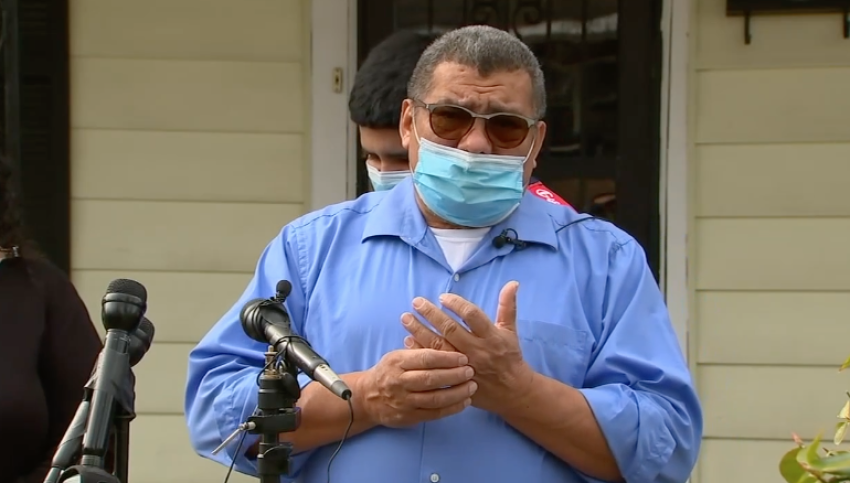El Salvadorian pastor leaves NC church sanctuary for first time in 3 years after Biden executive order

Jose Chicas spent the last three years hiding from Immigration and Customs Enforcement in a Durham, North Carolina, church. He left the building on Jan. 22 after President Joe Biden signed an executive order prohibiting all deportations of illegal immigrants who arrived in the United States before Nov. 1, 2020, except for national security reasons.
“God gave the victory today,” he told a crowd outside the church. Then he returned home for the first time in over 1,300 days.
On Inauguration Day, Biden took several actions related to immigration, including a reversal of former President Donald Trump's executive order that called for stricter immigration enforcement. Homeland Security also issued a memo to pause certain deportations for 100 days. During that time, the department has been directed to review policies and practices concerning immigration enforcement.
Before he took refuge in St. John’s Missionary Baptist Church on June 27, 2017, Chicas had lived in the U.S. for 32 years.
In 1985, Chicas and his wife fled a violent civil war in El Salvador. After arriving in the U.S., he skipped an asylum hearing after receiving bad legal advice, according to his website. His action led to a deportation order. However, he managed to stay in America because of another approved application for asylum and repeated stays of removal.
In the 1990s, he pled guilty to driving under the influence of alcohol and domestic abuse, his website says. Chicas became a Christian along with his family in 2002. He became a pastor and reconciled with his wife.
Chicas’ situation with the government also seemed to improve. He checked in with ICE on a monthly basis during his time living in North Carolina. He got a work permit, driver’s license and social security number. He also paid taxes.
However, at a routine checkup in 2017, ICE officials told Chicas he had to buy a one-way plane ticket back to El Salvador and never come back. Three of Chicas’ four children are citizens, and the fourth is eligible for work in the U.S. under President Barrack Obama’s Deferred Action for Childhood Arrivals executive order.
“When he came home with the news of his deportation, the Chicas family decided that such a permanent separation between husband and wife, father and children (not to mention between pastor and church community), was not an option,” his website states.
He suspected ICE suddenly demanded his deportation because of his criminal record from before the 1990s.
“Pastor Chicas hypothesizes that it was this record, part of the full and difficult life that transformed him into the man he is today, that caused his name to come up for deportation once the new political regime came into power in 2017."
To avoid deportation, he left his house and took sanctuary in a church. On weekdays, he washed cars in the church parking lot to support his family.
“This is jail, you know, because I can’t go outside,” he told local news outlet WRAL.
ICE can arrest illegal immigrants anywhere in the U.S. with a warrant. It’s also illegal for anyone to knowingly harbor an illegal immigrant. However, ICE almost never makes arrests in churches.
“For publicity reasons, immigration enforcement does not like to go into churches,” immigration law professor Stephen Yale-Loehr told CNN.
ICE designs its policy to ensure that illegal immigrants in need can get help and practice their religious freedom without hesitation. Churches and other places that can help illegal immigrants are “sensitive locations” with special rules.
“Enforcement actions at sensitive locations should generally be avoided, and require either prior approval from an appropriate supervisory official or exigent circumstances necessitating immediate action,” ICE’s website says. “DHS is committed to ensuring that people seeking to participate in activities or utilize services provided at any sensitive location are free to do so without fear or hesitation.”
ICE’s policy does not address using churches as a long-term shelter from deportation. However, 800 American churches have told Christian group World Church Service that they will act as sanctuaries for illegal immigrants if requested. Approximately 38 people across the U.S. are currently hiding from ICE inside churches.



























